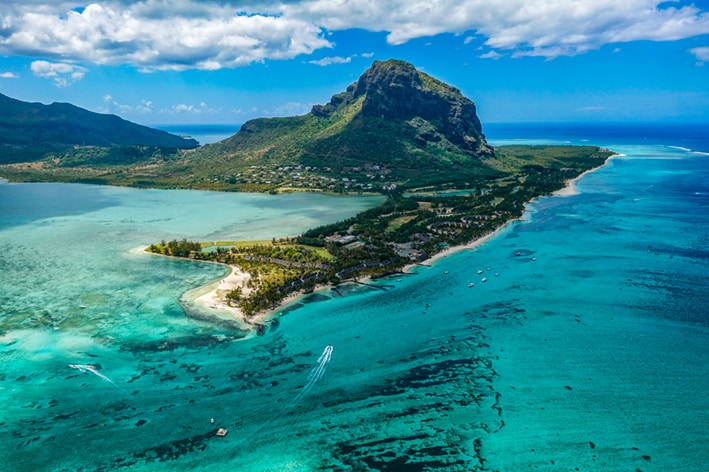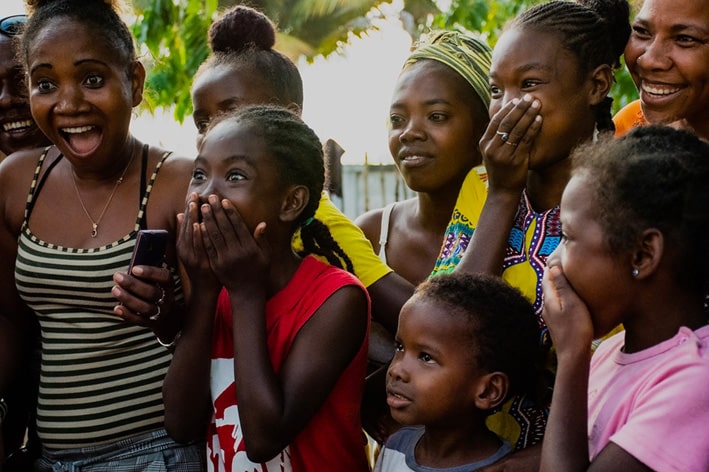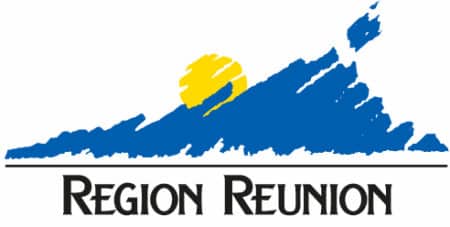The reputation and beauty of the Vanilla Islands’ landscapes is probably one of the elements that guided your choice to this destination. To enjoy this lush nature to the fullest, while limiting the impact of your presence on the local ecosystems, it is imperative that you choose your accommodation wisely. You will find in this post several tips and tricks for sustainable housing.
What is sustainable housing?
First, what is sustainable housing? If you have already done some research, you have probably come across a lot of different designations. Among the most common are the terms ” sustainable hotels ” and ” ecolodge “, which are easy to confuse. However, although close, the two notions are not identical.
A sustainable hotel is an establishment that promotes environmentally friendly practices, which result in reduced greenhouse gas emissions and lower waste discharges than the industry average.
An ecolodge is an eco-responsible housing both in the way it was built and in the way it operates. It is built in a preserved space and offers activities in harmony with nature, while being part of the local economy. Respect of the environment is therefore an integral part of its structure and its functioning.
Why choose an ecological hotel or ecolodge for your trip to the Vanilla Islands?
First, staying in a sustainable establishment allows you to limit the impact of your trip, both in terms of environment and society. From an environmental point of view, first, the products used are organic and mainly local: their ecological footprint will therefore be smaller. Secondly, from a social point of view, ecological hotels and ecolodges mostly employ local labor, paid fairly.
Moreover, due to the use of natural (and often raw) materials, these housings offer a relaxing and comforting atmosphere, and blend perfectly with the surrounding landscape. It is therefore the perfect place for a vacation that disconnects from the daily life of Western cities. It is also an opportunity to try out a new way of life, closer to nature, and to raise awareness among young and old alike.
Furthermore, these establishments offer quality services and an immersion into the traditions of the island you are residing on. For example, you will be able to enjoy the local gastronomy, since the dishes served are mostly traditional and made by local cooks.
How to choose your eco-friendly housing?
Several criteria can be considered when looking for the real gem, among which:
The balance between the establishment and the surrounding nature
Does the building fit well in its environment? Do the materials used allow it to blend into the landscape as much as possible?
Optimal waste management
Are most of the materials used organic? is it possible to recycle or compost them?
The use of renewable energies
The energy consumption of hotel complexes is a major contributor to the carbon footprint of tourism. Favoring green energy allows these emissions to decrease significantly.
An establishment that benefits the local population
Your visit should be positive for the residents of the Island you are visiting. Therefore, the activities and meals offered should be traditional and carried out by local employees, to have a positive impact on the local population as well as on the local economy.
Recognizing green and eco-friendly hotels with labels
For several years now, labels have been multiplying in the tourism sector (there are no less than 200 of them). They can be awarded at the national, European, or global level. They guarantee the implementation of good practices and a genuine concern for environmental issues.
However, not all labels require the same level of commitment from institutions. To ensure the reliability of the label, you can check it complies with the expectations of the Global Sustainable Tourism Criteria (GSTC). It is also important that the organization regularly re-evaluates its criteria to encourage the hotels holding the label to intensify their efforts.
Be careful, however, the label is a process to be undertaken by hotels, which must submit applications to the institutions whose label they covet. This application must be renewed every 6 months to one year, to guarantee the continuity of efforts. However, this process is costly, both administratively and financially (the price of a label can go up to 10 000€). Some organizations cannot afford to submit their application: if the presence of a label guarantees an environmental concern, its absence does not indicate a lack of interest in the issue. It is therefore a matter of discernment as to the relevance of labels (or their absence).
You now have all the information you need to make an informed and eco-responsible decision in choosing your accommodation for an unforgettable vacation. The Vanilla Islands Association wishes you a wonderful stay in the islands of the Indian Ocean!







